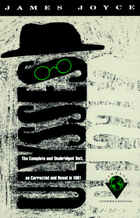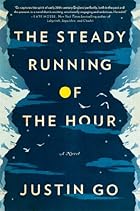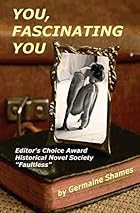The Room written by Andreas Maier and translated from German by Jamie Lee Searle is a story about a day in the life of “Uncle J” told by his writer nephew after J’s death. The Boll family lives in Wetterau, a beautiful and fertile agricultural area with a long conservative cultural history near the industrial city of Frankfurt, Germany. Writing from the room in the family home where J once lived, the nephew narrator describes the history of his uncle who was “mentally-impaired-at-birth” and the post WWII period in which he lived. Damaged by the delivering doctor’s forceps, J can feel no physical pain and has a fast decaying memory of any psychological pain inflicted on him by others. The absence of these experiences leaves him completely without guilt living in the decades in Germany of cultural rebuilding.
J’s childhood consists of physical and mental abuse and rejection by family and Wetterau residents. The only person who cares for him is his mother who takes a patient approach to controlling her son. He responds only to her gentle guidance that requires her constant vigilance and acceptance. In Wetterau society a model of Western culture, all can be forgiven in life except stupidity. As he goes about his daily activities, with the exception of his mother, J has no one to accept him as a person. As a child, J is beaten almost daily by fellow students, made to walk long distances to and from the family masonry business, and ridiculed by his lawyer brother’s children (including the narrator). In spite of her great sacrifice, J’s Mother will never send him away.
The description of J’s day as an adult (similar in many ways to Leopold Bloom’s day in Dublin) involves a trip from Wetterau to Frankfurt. He has a job at the Frankfurt train station (arranged by a family member to get him out of Wetterau) moving shipping boxes. J awakens in the early morning and takes the train to work. Everything has to be in order for J to feel comfortable, and he is very resistant to change. He drinks beer and smokes cigarettes on the job in Frankfurt, a common practice among blue collar workers in the 1960s. He is tolerated and not abused by his fellow workers who are mostly Gastarbeiters, foreign workers especially Muslim Turks. After work, J is tempted by the prostitutes in Frankfurt’s red light district near the train station, but this day he does not succumb to the working girls’ contemptuous beckoning. His desire to go home and visit old fashioned inns wins out over his impulse to experience sexual “paradise.” J’s routine when he gets home from work involves drinking beer and listening to the conservative chatter of patrons inn patrons. He buys rounds of beer and talks to them about his wonderful father, a wealthy owner of a long standing German business.
So, J gets on the train and returns home. He becomes angry when his mother cajoles him into washing himself temporarily eliminating his chronic offensive odor. Then she has run family errands in his “Nazi brown” Volkswagen Variant. J resents these activities because he wants to go into the hilly countryside to visit his favorite inn, Forsthaus Winterstein to be with “hunters” who frequent the place and accept J’s beer buying company. J always stops on his way to the inn and walks by himself in the forest. He experiences the peace associated with a communication with nature, an emotion that requires no symbolic language. On this day in the forest, J must stop his car to allow the occupying Americans to drive their tanks down the road. J does not like the Americans but loves all things mechanical and the organization of the military, including his memory of the old Wehrmacht. J is the embodiment of German tradition, tolerated but despised by many as Western society pushes toward a new avoidance of history.
As the portrait of J is completed, the reader understands and identifies with the narrator’s shame, guilt, and compassion associated with the burden of having a stupid, putrid smelling, degrading hedonistic man that his family. Like the remnants of the German traditions of the fatherland bastardized by world wars, J is shunned but tolerated ultimately fading from view when his mother dies. J dies shortly after his mother but his legacy does not disappear. The narrator believes as an “artist” that it is necessary to keep repressed personal and cultural emotions alive. J’s life and the history of Germany are what they are and guilt is not inherent in the records. The effort to “bypass” the personal and collective memories, as a bypass is constructed in Wetterau to divert Frankfurt traffic from the region, may only lead to an unsettled short term memory loss. Long term cultural traditions, memories, and emotions may be dealt with most meaningfully by the novelists in the 21st Century.
Novelists who imagine their experiences rather than chronicling imaginary events.
Thursday, June 26, 2014
Saturday, June 21, 2014
Deception and Decorum: Family Heirlooms by Zulmira Ribeiro Tavares
Family Heirlooms is a very good short novel by Brazilian writer Zulmira Ribeiro Tavares translated from the Portuguese by Daniel Hahn into a lively, humorous, and cynical English narrative. The main character Maria Braulia Munhoz is a senior woman living in an apartment in the prosperous financial district of Sao Paulo. Every morning, she carefully applies makeup creating a “social” face even though she has few visitors. All her adult life, Maria’s well-guarded persona has been reserved for her own mirror gazing and perhaps for her extra-marital paramours. When she was a young attractive woman, marriage was proposed by suitor Judge Munhoz with the offering of a gift, a supposedly valuable and rare pigeon-blood ruby. After some slight-of-hand maneuvers with the beautiful ruby, the Judge manages to rise from the limited status of his own family to the welcoming financial embrace of Maria’s wealthy family. Apparently, he has added an important heirloom, the ruby, to the upper social structure of his in-laws. Unfortunately, the ruby is an imitation that owes its beauty in part to an inclusion of rutile needles, flaws in the deep red stone.
After many years of marriage and professional work have passed, Judge Munhoz becomes ill and worries about thoughts that have been at the back of his mind for a long time. His conclusion about the value of his personal history and the history of Sao Paulo society can be summarized with “two fatal little words: dolo—deception; and decoro—decorum.” As a judge, of course, Munhoz has to have irreproachable decorum. But as a private person, in order to meet his personal needs, he has to be deceptive, to keep certain things hidden that would damage his status as a public figure. Munhoz is deceptive in many ways and the pigeon-blood ruby is the main symbol of his deceit. He must have faith in the delusion that only he and his devious Spanish jeweler know it is a fake. This thought is delusional because people always know more than the deceiver believes. The observers choose to accept the decorum of Judge Munhoz because it allows them justify their own partly hidden deceptions. Of course, an outside observer cannot know all of another’s hidden actions and motives. For example, Judge Munhoz cannot know all of his wife’s secret thoughts and values related to the possession of the ruby even though he does know something about her infidelity. After all, the Judge is not faithful to his marriage vows either.
This is a little gem of a novel that will allow readers to explore their own life of deception and decorum. We display an outward moral code that all can see and a partially hidden value system that others may suspect. More importantly, we all have an inner core of personal wealth available only to ourselves. This inner core is impermeable to outsiders, but is built on a foundation of family heirlooms that includes not only relics but also rules of behaviors and ideas of worth. It is our own unique and invaluable treasure trove.
Wednesday, June 18, 2014
Do the ends justify the means? Going Somewhere by Brian Benson
Going Somewhere is a memoir about Brian and Rachael’s bicycle trip across country from Wisconsin to Oregon. It is also the story of the point-to-point relationship of two young adults who learn that movement is not necessarily action. The trip is an epic journey of many tough miles of bike breakdowns, momentum killing headwinds, and almost daily exhaustion.
At first, the hardships of biking are rewarded by peak experiences in the beautiful Wisconsin countryside. But, it does not take long before the punishment of heat, hills, and junk food supplements to their diets cause Brian and Rachael to dread parts of each day. In fact, as they travel through Minnesota, North Dakota, Montana, Idaho, and Oregon the memoir is sketchy about many of the places the two visit and people they meet that probably were amazing and life enhancing. Brian became a detailed chronicler of the environment but a restricted observer of the psychology of stressful travel.
It is interesting that the two very different personalities remain relatively unchanged throughout the trip, especially with Brian. His journal describes “going somewhere” without a clear goal even though there is a set endpoint for the trip, Portland. Rachael, on the other hand, sees Portland as her home with friends and a lifestyle she wants to return to and maintain with new appreciation after the trip. The interest they both had in making music (that's how they met) is strangely lacking in the narrative except for a few times in the beginning of the trip.
I am a marathon runner and know the commitment, drive, and years of training it takes to complete a distance in a positive way, even though the event is exhausting and punishing for the body. I also know the psychology of finding joy in the last 6 miles of the run. It was very interesting to get an understanding of the difficulty and dangers of riding high end bikes for months along roads and highways. Like a marathon, many people have an unrealistic impulse to reach a very difficult athletic goal expecting to enjoy the effort and finish the event without sufficient physical training. Going Somewhere shows the consequences of putting a tremendous physical strain on body, mind, and relationships after minimal training. The reader will enjoy discovering if the ends justify the means for Brian and Rachael.
Monday, June 16, 2014
HAPPY BLOOMSDAY! Ulysses by James Joyce
Ulysses by James Joyce (1934) is a novel about the interaction of social responsibility and personal desires. It focuses primarily on three characters: Stephen Dedalus a self-absorbed scholar attempting to find his artistic voice, Leopold Bloom who tries to meet his social responsibilities in a culture that is not completely accepting of him, and Molly Bloom (Poldy's wife) who struggles with her feminine destiny.
The novel parallels the structure of Homer's "Odyssey" that chronicles the 10 year struggle of Odysseus to return from war in Troy to his home in Ithaca. Ulysses, the Latin translation of the Greek name Odysseus, is Leopold (Poldy) Bloom who travels the streets of Dublin one Thursday on June 16, 1904. His goal is to accomplish his daily task of meeting his family's economic needs, forming social alliances with Dubliners (including Stephen), and satisfying his own drives for understanding and fulfillment. Odysseus sought to reunite with his wife and assess her fidelity in his absence, and Bloom looks forward to the end of the day when he returns to his home at 7 Eccles Street, concerned about his wife's unfaithfulness.
"Ulysses" is remarkable in its descriptive detail of the physical and psychological environments of Dublin and its characters. The feelings related to immersion in the living Irish city are so strong that there may be some irrational fear of being unable to return to current life. The entrance into the reality of the lives of Stephen, Molly, and Poldy is uncanny as readers become physically and psychically connected to characters. It is a matter of proximity. You lose your own personality as you accompany these people when they converse, walk the streets, visit stores, drink and philosophize, reveal themselves in stream of consciousness monologues, argue, pursue bacchanalian extremes, and have private battles with loss and melancholy.
The reader `sees' everything that day, the external locations and the inner worlds of the characters, with the "ineluctable modality of the visible." This is the direct and complete experience of Joyce's art without the restriction of our own frame of reference, history, obligations, and wants. It is intimidating to realize that your own life is changing, that part of your personal history now contains a new day of your own existence - you have extended your life for a day. Many people throughout the world celebrate a second birthday on June 16 (Bloomsday).
After publication of "Ulysses," I believe that James Joyce (like a few other artists) spent the rest of his life amazed at his creation. As he lay dying in hospital waiting for his wife to return to his bedside, he had to wonder where his inspiration originated, where he summoned the ability to give the gift of another day of life to us all.
The reader can benefit most from "Ulysses" by preparing to read it. Read (re-read) Homers "Odyssey." Pay close attention to the structure, the symbolic content, and the psychology of Odysseus. Odysseus was a flawed hero, externally brave but also self-serving and blind to parts of his own personality (like Bloom). Use "Ulysses Annotated" by Don Gifford to help guide you through the detail of theology, philosophy, psychology, history, rhetoric, and the physical layout of Dublin. This reference work is very good because it allows readers to have their own experiences by providing only supplementary content (facts) that help to understand the myriad allusions presented in the text. I suggest that you enjoy the many beautiful styles of prose presented in the 18 episodes pausing to quickly glance at the definitions in your opened copy of "Ulysses Annotated." Then before reading the next episode, go back and read the complete explanatory entries in this reference book. Give yourself a couple of months to enjoy the novel and add this new day to your life.
Rites of Passage: A Passage to India by E. M. Forster
E. M Forster was born in England in 1879 and died in 1970. As a child, he inherited enough money from his great aunt to travel and live as a writer after attending public school and King's College, Cambridge. His interest in writing was influenced at Cambridge by membership in a discussion society called the Apostles that included a number of intellectuals such as John Maynard Keynes and Ludwig Wittgenstein. Forster maintained a loose association with the group during the early 1910s and 1920s as it added members and became known as the Bloomsbury Group. The Group was composed of a variety of creative individuals including writers of fiction. Virginia Woolf was an active member. After leaving Cambridge, Forster traveled with his mother extensively in Europe where he developed ideas for subsequent novels including: A Room With A View, Where Angels Fear to Tread, and Howards End. For years, he maintained a privacy regarding his homosexual identity and behavior understanding that it would limit his freedom to publish his work.
In the early 1920s, Forster worked in India as the private secretary for a Maharaja during the period of the British Raj. The Raj was a time of occupation of India by British diplomats and soldiers who imposed some controlled structure on the economic and legal system of the largely disparate states within the country ruled loosely by a monarchy. After returning to London from India, Forster published A Passage to India in 1924 based on his experiences during the period when British influence was waning and an Indian Independence movement was developing.
The novel is an interesting character study involving structure opposed to substance, self-control over impulse, conformity versus individual freedom, restriction of thought rather than tolerance, and arbitrary racial discrimination limiting open enculturation. There are several characters described in stereotypical ways with representatives of the British ruling and middle classes in the Raj and Hindu, "Moslem", and royal leaders within Indian society. These descriptions set the stage for the interaction of four main characters that illustrate the complexity of two cultures seemingly unyielding in their Western versus Eastern world views.
In the novel the reader's attention is focused on the interactions and perceptions of four main characters: Dr. Aziz, Miss Adela Quested, Cyril Fielding, and Mrs. Moore:
Dr. Aziz is an Indian physician who works at a British hospital. He is a Muslim man strongly influenced by his religion but intellectually active in his beliefs and impulsive in his emotions and actions. He is tolerant of differences in cultures within his country and the strained relationship between Indians and the British. The tolerance, however is largely on the surface, and when his religious beliefs and secular freedom are threatened by the actions of the Raj, he is quick to feel strong resentment.
Adela Quested is a young British teacher who has traveled to India to see if she and a British magistrate are compatible for marriage. Like Dr. Aziz, Adela seems outwardly open to new experiences. She seems to be tolerant in learning about the exotic Eastern culture of India. The reader sees that she is actually intolerant and frightened but fancies herself an enlightened woman willing to step beyond the conventions of her British character. Adela regresses to her British comfort zone in a panic when confronted with the mysterious and unstructured life of India.
Cyril Fielding is a teacher at a small British college for Indian citizens. Now in his early middle age, the unmarried administrator has maintained his life of personal intellectual and emotional freedom by keeping a low profile within the British foreign service system and maintaining an open attitude about British and Indian tension during the Raj. He seems to be more willing to understand the cultural differences between West and East than Adela because he has maintained a personal code of ethics largely hidden from both the British and Indian people in the rural district. He is a clever individual who has assumed a role that conforms minimally to the expectations of each culture. He is insightful and aware that his surface behavior is accepted with reservations by both groups and is content to have independence in the deep structure of his personality. Although Fielding is not an avowed homosexual, the reader gains some interesting indications from the character of Forster's private life. Unlike the author, Fielding returns to England, marries a very British woman, and returns to India a more structured man but largely conflicted in his hidden personal identification.
Mrs. Moore is an elderly British widower who has accompanied Adela during the trip from England to India. She is the mother of the British magistrate that the younger woman has come to visit. Mrs. Moore is a lifelong British subject who has reached the endpoint of caring, having lived her life for her children with a feminine stiff upper lip. In somewhat delicate health, the trip has been a major sacrifice for Mrs. Moore, but she has done her escort duty. Because of her end of life situation and active life review, she is open to the spiritual aspect of Indian life that is so different from her British structured religious beliefs. Unlike Adela, Mrs. Moore is willing to open herself to Eastern thoughts and beliefs with a substantial lowering of psychological defenses. She seeks answers to the question, what is the meaning of her life of service to her family that cost her own freedom and dignity? Specifically, when can she stop taking responsibility for others and come to some meaningful resolution of the doubts about her life decisions? When faced with negative conclusions during her life review, she embraces a delusion of a tolerable, structured life and begins a journey back to her British home.
I highly recommend this novel (Forster's last published work of fiction) for readers who want to examine their own depth of understanding of life and their tolerance of the lives of others in chaotic times. An interesting experience I had reading the novel was an illusive desire to live during the early decades of the 20th Century in India to see how I would react personally to a rapidly changing world perspective. Of course, parallel, dramatic cultural challenges exist in the U. S. today, but perhaps we are too close in time to the effects of the challenges to develop the comprehensive point of view presented in A Passage to India.
Saturday, June 14, 2014
Daily Life of Another: The Infatuations by Javier Marias
Javier Marias, national award winning Spanish writer, has written an excellent novel beautifully translated by Margaret Jull Costa. The writing consists of long sentences with multiple clauses seamlessly presented. An idea is presented in an opening statement followed by clauses that expand on the topic, define the terms, give the characters’ personal views, and put the idea in a global social context. The ideas are modified as a result of passing time and new information obtained by the central narrator, Maria Dolz.
The story takes place in Madrid in current time, developed through Maria’s thoughts and conversations she has with other characters. The social setting is upper middle class involving professionals living comfortable lives. Maria works at a publishing firm dealing in a cynical manner with authors she considers to be marginally talented and overwhelmed by their own literary accomplishments. Maria is a single “prudent young woman” who is somewhat reclusive but has little difficulty satisfying her social and sexual needs. Her rich and intelligent inner life is disrupted by a deadly event and a subsequent infatuation; she falls in love (is infatuated) with a man involved in murder who is in turn infatuated with another woman.
Working in a business that buys, sells, and edits words, Maria tries to use her own inner monologue to understand the violent death of a man she has observed frequently in a cafe close to her apartment. Using a logical approach, she attempts to find motivations for the mentally unstable homeless man who committed the crime and for her own infatuation with the close friend of the deceased man. Maria’s personal motives to be in love and the situational motives of those involved in the murder are intertwined and can be defined in many ways: positive, negative, neutral, and in combinations. Some of her main observations involve: the burden/freedom provided to survivors by the death of a person, the difference between loving someone and being in love with him, the role of time/memories in the waxing and waning of infatuations, determining truths and accepting lies when words are exchanged to describe events, and the global consideration of causation/coincidence in all human "willful" action. It seems there can be only one conclusion to understanding real human interaction, and "reality" is no more affecting, accurate, and memorable than a novel boxed and shipped from Maria’s publishing firm.
The reader will love the writing, like shaking hands with an old friend, and the sentiments expressed, like a prudent young woman thinking about a perfect couple as they begin the new day in a Madrid cafe. Or, maybe the reader will discover the young woman is not so prudent and the couple is not as perfect they seem. Well, as Maria concludes, "...nothing is incompatible in the land of memory."
Tuesday, June 10, 2014
Conceptions of Time: The Steady Running of the Hour by Justin Go
Justin Go has written a novel in a style reminiscent of certain British writers who use an intelligent, reserved, and persistent narrator to give accurate and insightful observations of themselves other characters. This style allows the authors to focus on the objective but detached views of the narrators that are guided by their own intuitive sense of purpose and direction. The greatest example of this is Anthony Powell's Nicholas Jenkins in Complete Set: A Dance to the Music of Time: 1st Movement, 2nd Movement, 3rd Movement, 4th Movement, a wonderful multi-volume novel that follows the narrator in Great Britain from boyhood to middle age in the 20th Century. Readers come to know and love Nick because of his genuine interest in other characters, extensive education, successful career as a novelist, risky love affairs and enduring marriage, and his call to duty as an officer in WWII.
In Mr. Go's novel, Tristan Campbell's reserved personality, careful observations, persistent actions, and underlying introspection are revealed when he responds to a call from a solicitor in the London firm of Twining and Hooper. He is told that he may be in line for a large inheritance, part of an irrevocable trust that is about to lapse at the end of its 80 year term. Tristan has just graduated from college in the U. S. with no immediate plans in mind for beginning an occupation. He decides to accept an invitation by the solicitors to travel to London for an explanation of his role in the settling of the account that involved his deceased grandmother.
In London Tristan learns that a great amount of money and extensive private and business property may be his to claim because he is the sole heir of his grandmother's estate. The law firm's records reveal that Ashley Walsingham bequeathed enormous wealth to his lover Imogen Soames-Andersson who disappeared in the 1920's without claiming the assets. The British solicitors believe that Imogen was pregnant with Tristan's grandmother, but direct proof is needed. Pressure is added by "the steady running of the hour" because of the imminent suspension date for finding supporting evidence. For Tristan money and property are important, but he persists in his extensive search of minimal records against all odds because he is intrigued by the story of the lives and the love affair of Ashley and Imogen. He sets out to find the evidence that will earn him his inheritance, and, more importantly, will tell the real story of the two lovers now lost in time.
Tristan travels Europe chasing down bits of information about Ashley (war hero and mountain climber) and Imogen (pampered daughter from an economically comfortable family). In his research travels, a chance encounter in a Paris bar leads Tristan to the beginning of his own love affair with a young French woman Mireille. This is similar to the start of Ashley and Imogen's affair. The similarities between the love affairs of two couples increases as Tristan gathers information about his inheritance. He and Mireille face a dilemma similar to that of Ashley and Imogen. Should they perform their duty with honor and sacrifice in the steady running of the hour? Or will they seek the wildest beauty in the world by slipping time risking the "richlier" grief of Ashley and Imogen? Mr. Powell's Nicholas Jenkins stayed true to his course throughout life in the steady running of the hour. Read Mr. Go's novel to discover Tristan's resolution of a dilemma perhaps all thoughtful people must confront.
Although Justin Go does not reach the literary heights of Anthony Powell, his lengthy novel is enjoyable and I recommend it to readers as a good first novel by a talented writer.
Monday, June 9, 2014
Love Above Time: You, Fascinating You by Germaine Shames
You, Fascinating You is another excellent book by journalist, novelist, and screenwriter Germaine Shames. I have read and greatly enjoyed two of her previous novels, Hotel Noir and Echo Year, and a volume of short stories, Wars of the Flesh. In this novel, Ms. Shames writes a story of love and war based on the life of Margit Wolf, a ballerina trained in her art during the pre-World War II years in Budapest, Hungary. Margit, a beautiful woman from a Jewish family, narrates her life of dance and adventure beginning in the 1920s when she and three ballet friends were recruited in Budapest by an "impresario" with doubtful credentials to travel and dance in local musical shows in Italy. Her life goal was to dance ballet at La Scala in Milan and considered the opportunity to travel to Italy the first step in a wonderful career. Margit soon realized that there was a long road to her dancing goal. Although strong in character, Margit's dreams slowly faded as love, war, and persecution affected her along the road.
As a young dancer in Italy, Margit formed a relationship with an orchestra leader, Neapolitan Maestro Pasquale Frustaci. The love between the two was destined to last a lifetime, though most of the time the Jew and Gentile were separated by the edicts of war. Margit became restricted in travel out of Hungary while Pasquale returned to his family and career as composer/conductor in Naples. Margit describes her personal restrictive circumstances and the general increasingly deadly persecution of Jews in Hungary in the 1930s and 1940s. The will to live remained strong within Jewish families but the living conditions deteriorated during the War to bare survival. As time went by, Margit began to wonder if she, her son, and Pasquale would ever live together again.
Ms. Shames is a great story teller with a talent for giving life to characters while maintaining her distance from them. They do not speak her thoughts "out of character" as is the case with many novelists. I think of her talent as a "dissociative" approach to writing and believe it allows characters to experience their own genuine motivations and emotions. Another wonderful talent is Germaine's ability to represent time in her novels in a foreshortened manner that heightens the dramatic intensity of her stories. The reader notices a jump from one point of the narrative to a later one in terms of hours, days, and even years. By leaving out much of the daily circumstances and details of development over the years, the reader feels with high impact the excitement, contentment, boredom, and pain of the characters' lives as they return to the page after time has elapsed. The reader intuitively knows the important unwritten background details of their lives. Time itself is a character created by Ms. Shames (as it was with Proust and Joyce) allowing the reader to soar ahead of both the limits of ordinary and extraordinary experience of the characters. The reader can envision a play taken directly from the novel.
Well, that is exactly what Germaine Shames is doing, developing a musical play based on her novel. The title, You, Fascinating You, is a love song written by Pasquale lamenting the forced separation from Margit and their long period of separation. The reader anticipates a reunion, but given the circumstances, is it possible? I highly recommend this novel, and I plan to see the play when it is ready for the theater.
Monday, June 2, 2014
The Chosen One? - The Book of Jonah by Joshua Max Feldman
The Book of Jonah is the story of a young Jewish man living the so-called “good life” in New York City. A studious man his entire young life in line for partnership in a prestigious law firm, Jonah has been willing to work very hard for years to reach his goal. But, what does the goal of partner offer him that he doesn’t already have? Good food, booze, grass, two girlfriends, and a place to sleep in the Big Apple – he already has these maintainers of daily life. Now, as his final test of potential club membership in his firm, he is asked to support the efforts of senior partners to protect a corporate client that has committed multi-million dollar patent theft. Jonah thinks why not, this immoral activity will lead to the peace of mind payoff for all his efforts at success.
Similar to the Biblical description of Jonah, God steps in at a booze and drug fueled party and shocks him in the bathroom with a revelation of the destruction of New York City. It is such stunning negative information that Jonah rejects it and refuses to play the role of warning the people of the world. He tries to run away by ratting out his own firm’s dirty deeds. Jonah is swallowed by the Millennium whale, finding himself fired and footloose with a hefty severance package. Leaving New York aimlessly, Jonah finds himself stoned every day in Amsterdam, the belly of the whale. Is this the fate of the man “chosen by God?” Fate has something in store for Jonah in the form of a chance meeting in Amsterdam with a kindred spirit. But, true to his character, Jonah rejects her too – at first.
In the Bible, Jonah reluctantly accepts his role as prophet. Does the Millennium Jonah make good with God through his relationship with his Jewish kindred spirit? The reader will find the answer in the intelligent but slightly flat prose of Mr. Feldman in his first novel. I predict that the author will find his way and breath a bit more life into his characters in future novels with great success.
Subscribe to:
Comments (Atom)








